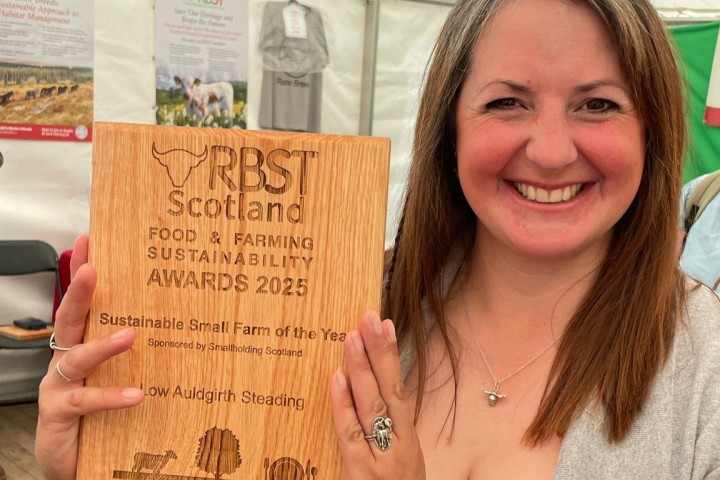The Royal Highland Show is one of the most important events in the Scottish farming calendar, and NFFN Scotland was out in force at this year's event in Edinburgh. Here, NFFN Scotland manager Adam Forrest rounds up four busy days of conversations, awards and major policy announcements.
For the first time, NFFN Scotland hosted its own marquee at this year’s Royal Highland Show (RHS). Over the four days, we welcomed new and existing members, farmers and crofters, policymakers, researchers, and NGOs to our stand for engaging and enjoyable conversations on a wide range of topics.
Our team was brilliantly supported by farmers from the NFFN Scotland steering group, who gave their time and energy to promote and champion our work. We’re very grateful for their enthusiasm and commitment.
Major announcements by the Scottish Government
The RHS brought a raft of new announcements set to shape the future of agricultural support in Scotland. These were outlined in a Thursday morning speech by Mairi Gougeon, Cabinet Secretary for Rural Affairs. Among the most significant announcements were:
No plans to cut livestock numbers - The Scottish Government confirmed it has rejected the Climate Change Committee’s recommendations to reduce livestock numbers, instead saying it will work with the sector to meet net zero while sustaining the rural economy through other measures.
New Code of Practice for Sustainable and Regenerative Agriculture - The first iteration of the code has been published, offering guidance on sustainable farming practices. You can read the code here.
Future Farm Investment Scheme (FFIS) - This is a new £14m capital support scheme that will open for applications on 14 July, offering upfront grants of up to £20,000 (at 100% grant rate) to support investment in nature-friendly, climate-smart and efficient farming practices. Further details are available here.
Small Producer Practical Training Fund - The Scottish Government has ring-fenced £140,000 for new, tailored training to support skills development among micro-businesses and small producers.
Derogation for small herds - From 2026, holdings with 10 calves or fewer will be exempt from the calving interval rule within the calf scheme, following dialogue with the Scottish Crofting Federation and NFU Scotland.
Next Generation Support - Priority funding has been announced for new entrants, young farmers, small units and tenants, with additional work continuing to refresh wider support packages, including tailored business loans and greater access to public land.
Support for food processing and marketing - A £5 million fund has been announced, though details are still in development and yet to be released.
LiDAR rollout - Nationwide 3D mapping is underway, producing highly detailed data on every field and watercourse in Scotland to better target future support, regulation, and advice.
Celebrating success
We were thrilled to see our Steering Group Vice Chair, Ruth Ashton-Shaw, win the Sustainable Small Farm of the Year award at the Rare Breeds Survival Trust (RBST) Scotland ceremony. This well-deserved recognition celebrates Ruth’s outstanding work at Low Auldgirth Steading in Dumfries and Galloway - congratulations, Ruth
(You can read about her farm here).



